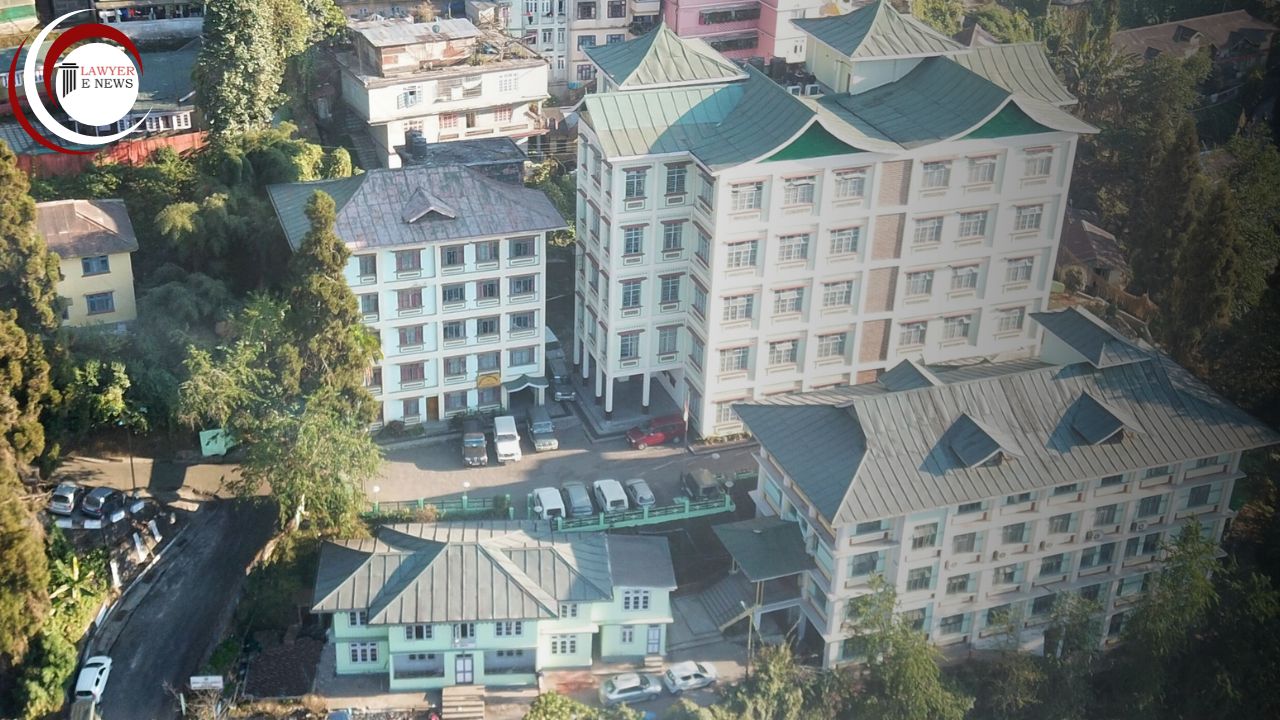-
by Admin
15 February 2026 5:35 AM



In a recent judgment, the High Court of Himachal Pradesh dismissed appeals by the appellants, Dina Nath and another, challenging the partition orders passed by various revenue authorities. The bench, comprising Chief Justice M.S. Ramachandra Rao and Justice Satyen Vaidya, emphasized the necessity of adhering to statutory appeal processes under the Himachal Pradesh Land Revenue Act, 1954. The court underscored that unchallenged foundational orders regarding the mode of partition preclude later collateral attacks.
Respondent No.5, a sibling of the appellants, filed two applications for the partition of family land in Village Kotlu, Sub Tehsil Bharari, District Bilaspur, Himachal Pradesh. The Assistant Collector, Bharari, initially ordered the partition. However, upon the appellants’ appeal, the Collector, Sub Division Ghumarwin, remanded the cases for fresh proceedings. The Assistant Collector subsequently prepared the mode of partition, which was unchallenged by the appellants. Subsequent orders based on these proceedings were appealed by the appellants, but their appeals were dismissed at every judicial level, including the Financial Commissioner (Appeals) and the writ court.
Finality of Unchallenged Orders:
The High Court highlighted the appellants’ failure to challenge the initial mode of partition order dated September 6, 2022, which precluded them from contesting subsequent orders. “In the absence of challenge to the orders dated 6.9.2022, finality was attached to such orders,” the bench noted. This principle is rooted in the statutory requirements of the Himachal Pradesh Land Revenue Act, which necessitate timely challenges to foundational orders.
Statutory Appeals and Revisions:
The court emphasized the proper invocation of legal procedures under Sections 14, 17, and 130(2) of the Himachal Pradesh Land Revenue Act. The appellants’ failure to appeal the mode of partition order within the stipulated time rendered their subsequent appeals and revisions invalid. The bench reiterated that “the authorities and writ court’s decisions aligned in rejecting appellants’ challenges as per statutory requirements.”
Jurisdiction of Writ Court:
Addressing the limitations of the writ court, the High Court stated, “The learned single judge was not required to look into the merits of the defence raised by the appellants in partition proceedings, as the jurisdiction of the writ court against the orders passed by the statutory quasi-judicial authorities is limited to examining patent illegality or perversity.” The writ court’s role is confined to reviewing procedural and legal errors rather than re-evaluating the substantive merits of partition disputes.
Quotes from the Judgment:
Chief Justice M.S. Ramachandra Rao remarked, “In the absence of challenge to the foundational orders, the appellants’ subsequent appeals lack merit and cannot be entertained.” Justice Satyen Vaidya added, “The consistent reasoning of the subordinate revenue authorities and the writ court in upholding the partition orders reflects adherence to statutory processes, which must be respected.”
The High Court’s decision reinforces the judiciary’s commitment to upholding procedural rigor in land partition disputes. By affirming the lower courts’ and revenue authorities’ findings, the judgment sends a clear message about the importance of timely and proper invocation of statutory appeal mechanisms. This ruling is expected to impact future land partition cases significantly, ensuring adherence to established legal processes.
Date of Decision: July 09, 2024
Dina Nath & another vs. State of H.P. & others
